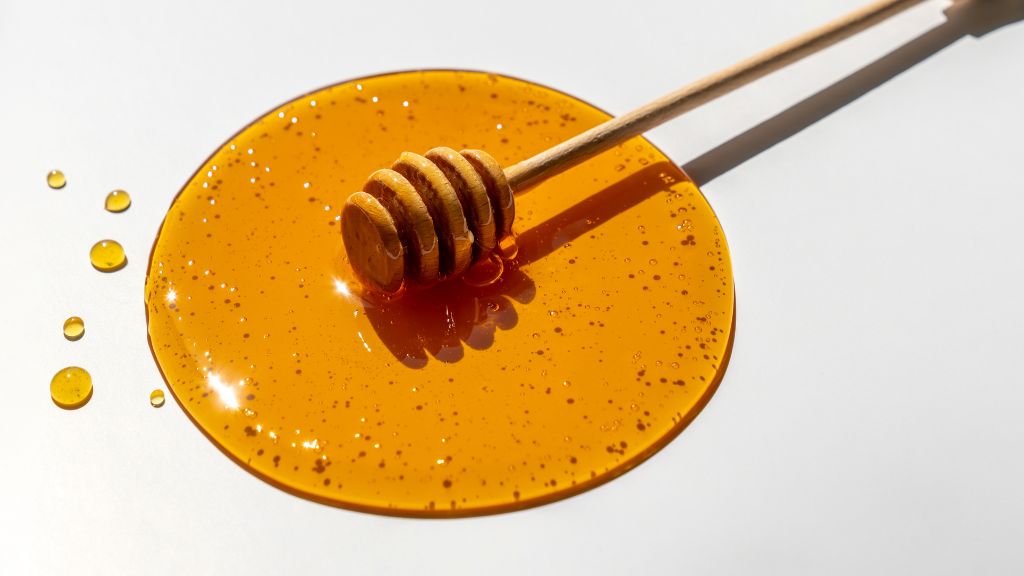Honey marketed for 'sexual enhancement' could be dangerous, FDA warns
Such products can be dangerous to consumers.

Get the world’s most fascinating discoveries delivered straight to your inbox.
You are now subscribed
Your newsletter sign-up was successful
Want to add more newsletters?
Join the club
Get full access to premium articles, exclusive features and a growing list of member rewards.
Four companies selling honey-based products containing unlisted active drug ingredients have received warning letters from the U.S. Food and Drug Administration (FDA). The companies promoted these products as sexual enhancers, and laboratory testing revealed that they contained active ingredients found in drugs for erectile dysfunction — namely, tadalafil (Cialis) and sildenafil (Viagra), the FDA announced Tuesday (July 12).
Tadalafil and sildenafil may be used only under the supervision of a licensed health care professional, in part because they interact with common prescription medications known as nitrates. Nitrates are commonly taken by people with diabetes, high blood pressure, high cholesterol and heart disease and work by causing blood vessels to dilate, thus increasing the flow of blood and oxygen to the heart, according to the medical database StatPearls.
Tadalafil and sildenafil also cause blood vessels to dilate, so if someone takes these drugs at the same time as nitrates, their blood pressure may plummet to dangerously low levels. Severely low blood pressure can be life-threatening because vital organs may not receive an adequate supply of blood and oxygen, and this deficit can lead to shock, irreversible organ damage and death, according to the Mayo Clinic.
"Tainted honey-based products like these are dangerous because consumers are likely unaware of the risks associated with the hidden prescription drug ingredients in these products and how they may interact with other drugs and supplements they may take," Judy McMeekin, the FDA's associate commissioner for regulatory affairs, said in the agency's statement.
Related: Men who took erectile-dysfunction drug had blue-tinted vision for days
"Products marketed with unidentified ingredients may be dangerous and, in some cases, deadly to consumers," she said. "We encourage consumers to remain vigilant when shopping online or in stores to avoid purchasing products that put their health at risk, and instead seek effective, FDA-approved treatments."
The four companies that received warning letters include Thirstyrun LLC (also known as U.S. Royal Honey LLC), MKS Enterprise LLC, Shopaax.com, and 1am USA Incorporated dba Pleasure Products USA. The FDA said these companies violated federal law by allegedly selling active drug ingredients in products marketed as foods and by making unauthorized claims that their products treat disease or improve health.
Get the world’s most fascinating discoveries delivered straight to your inbox.
Specifically, the products — including Etumax VIP Royal Honey for Him, Dose Vital Honey for Men, Secret Miracle Royal Honey for Her and X-Rated Honey for Men — were promoted as sexual enhancement products.
"The FDA has requested responses from the companies within 15 working days stating how they will address these issues or providing their reasoning and supporting information as to why they think the products are not in violation of the law," the FDA statement reads. "Failure to promptly address the violations may result in legal action, including product seizure and/or injunction."
The FDA encourages consumers to speak with a health care provider before trying any over-the-counter product marketed for sexual enhancement. Consumers can also refer to the FDA's health fraud products database to check if a product has been flagged as potentially hazardous.
Consumers and health care providers can report adverse reactions related to specific products through the FDA's MedWatch program or the Safety Reporting Portal.
Originally published on Live Science.

Nicoletta Lanese is the health channel editor at Live Science and was previously a news editor and staff writer at the site. She holds a graduate certificate in science communication from UC Santa Cruz and degrees in neuroscience and dance from the University of Florida. Her work has appeared in The Scientist, Science News, the Mercury News, Mongabay and Stanford Medicine Magazine, among other outlets. Based in NYC, she also remains heavily involved in dance and performs in local choreographers' work.
 Live Science Plus
Live Science Plus










